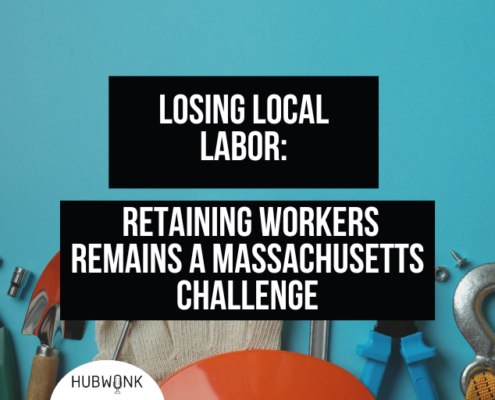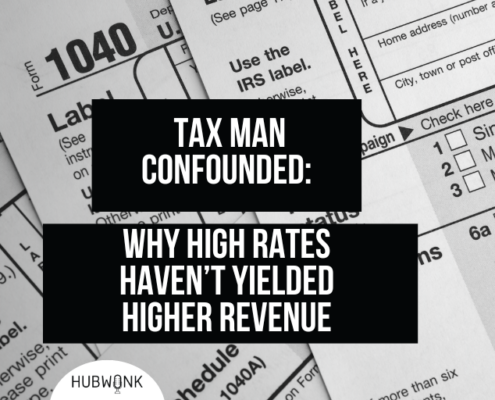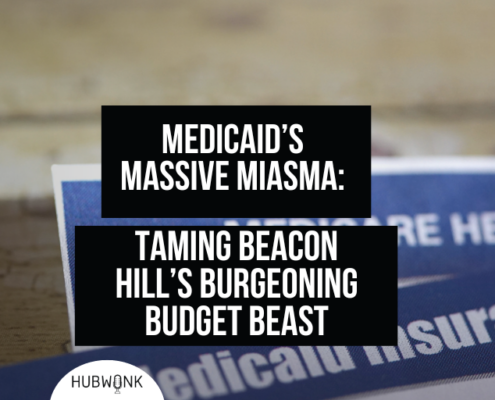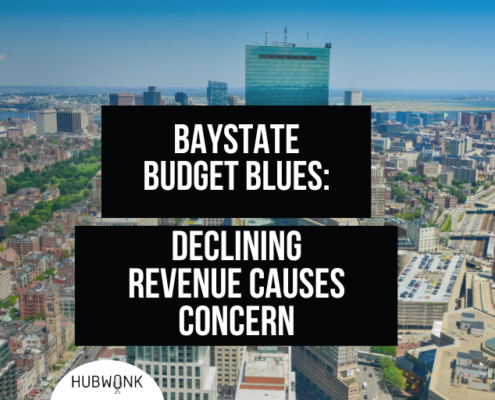Unemployment Insurance Rescue: Employer Advocate Seeks Relief to Catalyze Pandemic Recovery
/0 Comments/in COVID Economy, COVID Podcasts, Economic Opportunity, Featured, Podcast Hubwonk /by Editorial StaffJoe Selvaggi talks with John Regan, President and CEO of Associated Industries of Massachusetts, about the impact of higher UI rates on employers and what legislators can do to help mitigate the pain.
Guest:
 John Regan became President and Chief Executive Officer of Associated Industries of Massachusetts (AIM) in May 2019 after leading the organization’s government affairs operation for 18 years. Mr. Regan leads a statewide association of 3,500 employers that provides advocacy, community and resources as a strategy to create success, well-being, growth, equity and prosperity.
John Regan became President and Chief Executive Officer of Associated Industries of Massachusetts (AIM) in May 2019 after leading the organization’s government affairs operation for 18 years. Mr. Regan leads a statewide association of 3,500 employers that provides advocacy, community and resources as a strategy to create success, well-being, growth, equity and prosperity.
Before joining AIM, John served as Executive Vice President for Operations at MassDevelopment, the state’s economic development agency, where he interacted with many AIM members on specific projects.
John is a member of the Workers Compensation Advisory Committee and the Rating and Inspection Bureau.
Get new episodes of Hubwonk in your inbox!
Recent episodes:

Precision Law Enforcement: Can Gunfire Detection Technology Serve and Protect Everyone?

Examining Diversity’s Dividends: Can Studies Survive Contact with Peer Review

Promoting Policy Probity: Confessions of Hubwonk’s Humble Host at 200

Losing Local Labor: Retaining Workers Remains a Massachusetts Challenge

Tax Man Confounded: Why High Rates Haven’t Yielded Higher Revenue

Industrial Policy Reimaged: Can Government Improve Free Markets

Posting Patient Prices: Transparency Cure for Hospital Blank Checks

Constitutional Property Taking: Exclusionary Zoning’s Costs to Owners and Society

Poor Housing Incentives: Tax Credits Reward Politicians Not Neighbors in Need

Biden’s Budget Breakdown: Pragmatic Progress or Political Posturing

Genetic Therapy Revolution: Benefits and Barriers for Medicine’s New Horizon

Contours of Content Curation: SCOTUS Hears Online Free Speech Cases

Mortgage’s New Normal: Guide to Better Borrowing Amidst Higher Rates

Medicaid’s Massive Miasma: Taming Beacon Hill’s Burgeoning Budget Beast

Baystate Budget Blues: Declining Revenue Causes Concern




